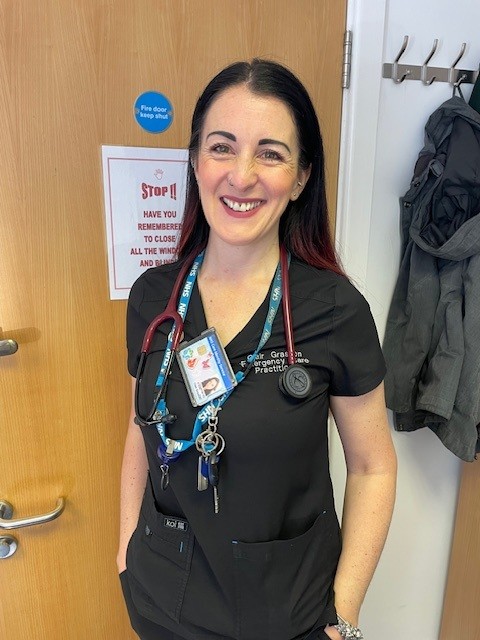For many paramedics, the transition from ambulance shift work to a more stable and clinically diverse role can be both daunting and liberating. For Clair Graston, an Emergency Care Practitioner and mother of two, the move into primary care marked a turning point - both professionally and personally.
After two decades with the North West Ambulance Service, Clair made the bold decision to pivot her career in 2021. “I felt clinically limited in the ambulance service,” she explains. “Progression often meant moving into administrative roles, which wasn’t the path I wanted.” The shift to primary care, though intimidating after such a long tenure, proved to be the best decision she’s made.
Now based in Northwich, Clair works within a Primary Care Network (PCN) alongside a multidisciplinary team funded by the Additional Roles Reimbursement Scheme (ARRS). The team includes occupational therapists, social prescribers, pharmacists, and fellow paramedics. Her role is multifaceted - ranging from home visits for housebound patients to acute illness clinics for individuals over the age of three.
“We treat a wide spectrum of conditions - respiratory, ENT, cardiac, skin issues, and more,” Clair says. The team also facilitates basic life support training for all clinical and non-clinical staff, having undertaken training through the Resuscitation Council. Their clinical capabilities are extensive and include diagnostic assessments such as blood pressure, oxygen saturation, pulse, blood glucose readings, respiratory rates, 12-lead ECGs, and D-dimer testing. They perform blood sampling, swabs, stool and urine analysis, ENT assessments using otoscopes, and pregnancy testing.
Paramedics in the PCN also support chest, abdominal, neurological, and musculoskeletal examinations, including digital rectal and cardiac assessments. They refer patients to a wide range of services including occupational therapy, physiotherapy, incontinence services, social prescribing, ECG (if unable to perform during assessment), and memory assessment clinics.
Clair’s transition wasn’t just about clinical growth. With her partner also working in emergency services, the move offered a much-needed work-life balance. “No more unsocial hours. I can be present for my kids and still do meaningful work.”
Clair’s journey reflects a broader evolution in UK healthcare. As GP shortages persist and patient needs grow more complex, paramedics are stepping into primary care roles with increasing frequency.
“We’re adaptable, flexible, and relieve pressure on overstretched GP practices,” she notes. “Patients and staff alike find our services invaluable.”
Despite the progress, Clair acknowledges that the role is still developing. Clinical guidelines vary across practices, and while paramedics are registered with the Health and Care Professionals Council (HCPC) and often hold advanced degrees, there’s ongoing debate about unified governance for Advanced Clinical Practitioners (ACPs).
Her own path included a Master’s degree funded by Health Education England, and she was the first paramedic hired across seven GP surgeries in her network. “It’s still early days, but the potential is enormous,” she says. “We’re already seeing paramedics manage chronic illnesses, support palliative care, and even perform minor procedures.”
Clair is particularly passionate about end-of-life care and is undertaking further training to manage her own caseloads. “It’s about easing pressure on GPs and ensuring patients receive compassionate, expert care.”
As Australia and Aotearoa New Zealand explore integrating paramedics into primary care, Clair’s story offers a compelling case study. “The NHS had to adapt to meet public demand. With proper education and support, paramedics can be a vital part of the solution.”
Her message is clear: paramedics bring a wealth of experience, clinical acumen, and human compassion to primary care. And as the role continues to evolve, so too does the impact they can make - one patient, one practice, one community at a time.
 Clair Graston
Clair Graston

Get unlimited access to hundreds of ACP's top courses for your professional development.
Join Now